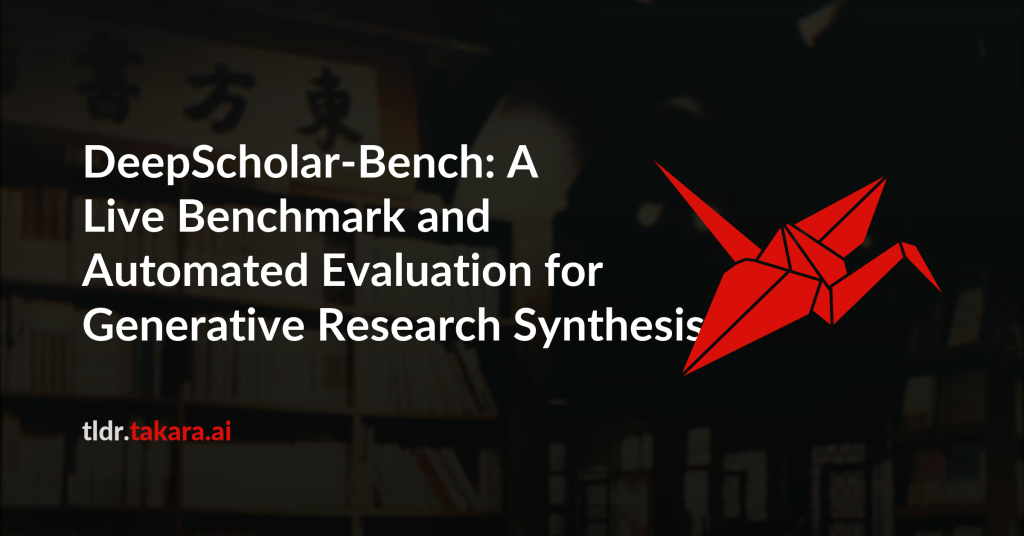The ability to research and synthesize knowledge is central to human
expertise and progress. An emerging class of systems promises these exciting
capabilities through generative research synthesis, performing retrieval over
the live web and synthesizing discovered sources into long-form, cited
summaries. However, evaluating such systems remains an open challenge: existing
question-answering benchmarks focus on short-form factual responses, while
expert-curated datasets risk staleness and data contamination. Both fail to
capture the complexity and evolving nature of real research synthesis tasks. In
this work, we introduce DeepScholar-bench, a live benchmark and holistic,
automated evaluation framework designed to evaluate generative research
synthesis. DeepScholar-bench draws queries from recent, high-quality ArXiv
papers and focuses on a real research synthesis task: generating the related
work sections of a paper by retrieving, synthesizing, and citing prior
research. Our evaluation framework holistically assesses performance across
three key dimensions, knowledge synthesis, retrieval quality, and
verifiability. We also develop DeepScholar-base, a reference pipeline
implemented efficiently using the LOTUS API. Using the DeepScholar-bench
framework, we perform a systematic evaluation of prior open-source systems,
search AI’s, OpenAI’s DeepResearch, and DeepScholar-base. We find that
DeepScholar-base establishes a strong baseline, attaining competitive or higher
performance than each other method. We also find that DeepScholar-bench remains
far from saturated, with no system exceeding a score of $19\%$ across all
metrics. These results underscore the difficulty of DeepScholar-bench, as well
as its importance for progress towards AI systems capable of generative
research synthesis. We make our code available at
https://github.com/guestrin-lab/deepscholar-bench.

